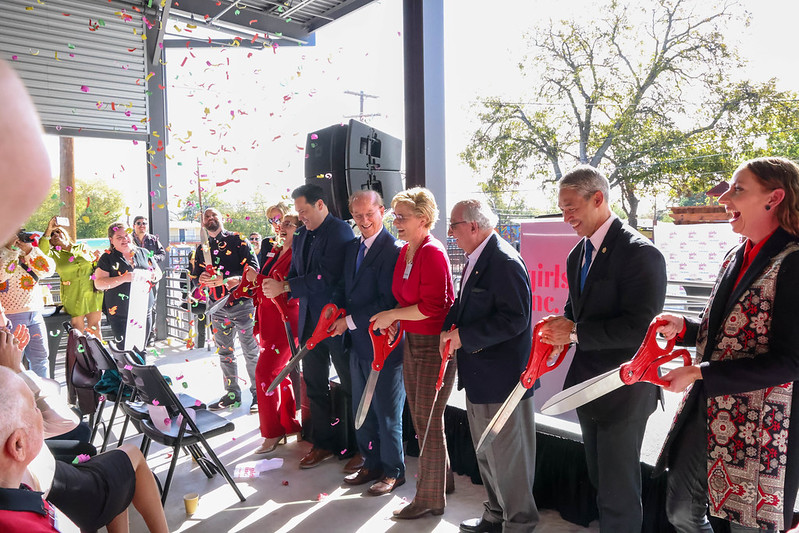Established in 2016, the San Antonio Area Foundation’s Successfully Aging and Living in San Antonio (SALSA)collective impact coalition was created to increase leadership, collaboration and funding to ensure older adults have access to necessary services, information and support systems. Its mission is to transform our community by advancing practices and policies that improve the quality of life of older adults in Bexar County.
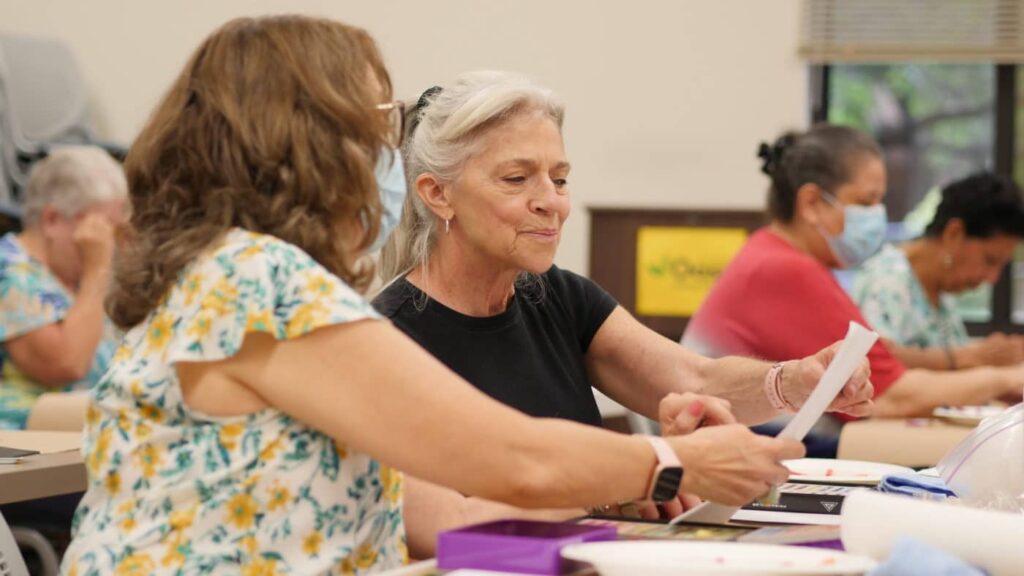
Jane Paccione, the Area Foundation’s Managing Director of Collective Impact, heads up SALSA’s efforts and initiatives. In light of May being Older Americans Month, we sat down with Paccione and Kylie Meyer, Assistant Professor and Gerontological Researcher at UT Health San Antonio, whose research focuses on caregiving. Meyer also volunteers with SALSA’s Caregiver and Socialization Workgroup.
Meyer’s current research focuses on how to improve financial well-being for dementia family caregivers. Paccione and Meyer discussed SALSA’s current project, which focuses on supporting caregivers as they struggle to balance caregiving and their jobs.
What was the driving force behind the creation of the Caregivers in the Workplace Project?
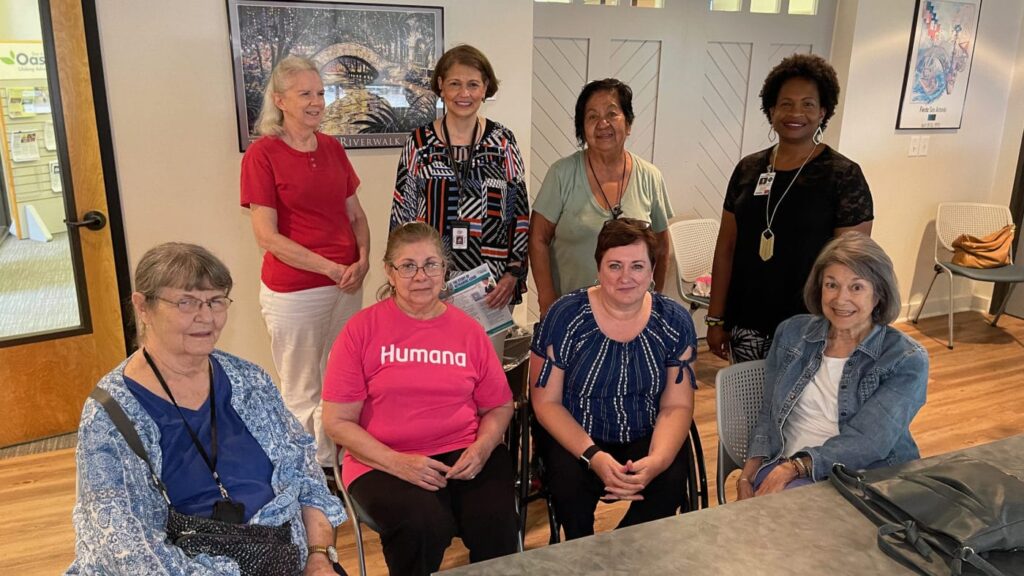
JP: Last summer, the Caregiver and Socialization Workgroup set out to identify its ‘next big thing.’ After a group discussion, the team decided an initiative to help caregivers to balance employment and caregiving would be one of their priority initiatives for 2022. I love a quote by Carol Zernal, one of our Family Caregiving Advisory Council members and herself a caregiver: ‘How do we create a world where caregiving is central to who we are, as opposed to something that diverts us or is a sideline of our real lives?’ This focus is at the core of our work at SALSA. As we concentrate our efforts in this area, we are fortunate to be able to partner with dedicated researchers like Kylie, whose gerontological research is helping us make great strides toward reframing aging. We want to make sure caregivers have everything they need to be successful. Kylie’s research is helping us redefine the role of caregiver.
KM: We so often hear caregivers say things like ‘I love my mom and I want to help her – but I also want to excel at my career.’ How can we best support these caregivers to achieve that balance? We know caregiving – particularly caring for a dementia patient – is so incredibly stressful. This stress actually increases certain markers of inflammation in the caregiver. We see caregivers feeling very stressed because they aren’t sure they are doing it right. They think ‘I’ve been a successful corporate person, but I’m no longer succeeding at my job – and I’m not succeeding as a caregiver.’
What are the priorities for the Caregivers in the Workplace Project?
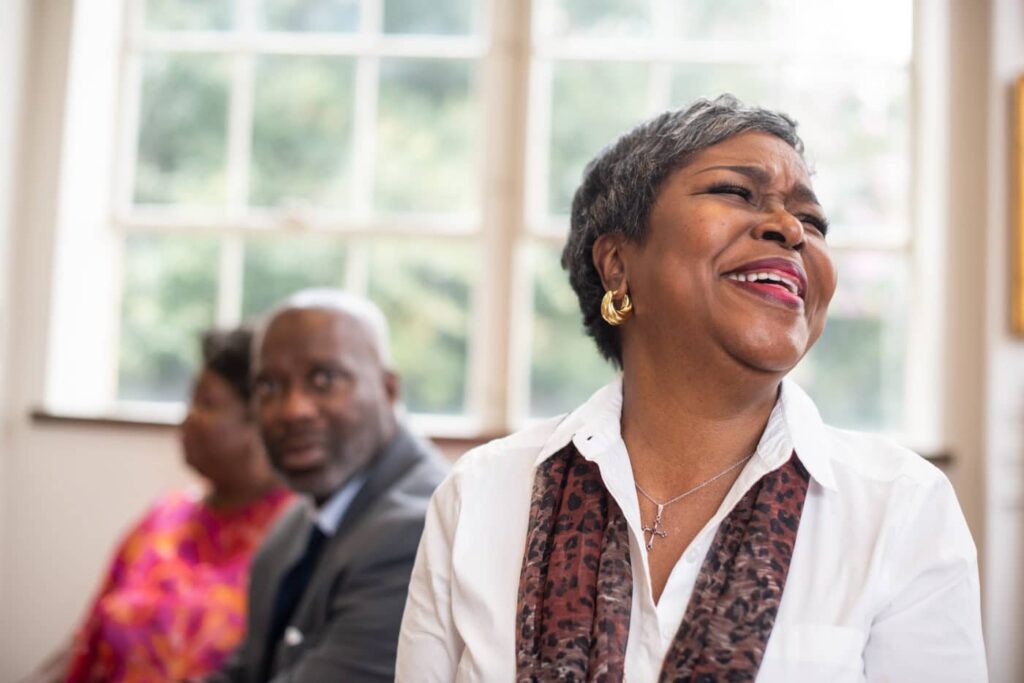
JP: We chose to focus on nonprofit employers initially before expanding outreach to the for-profit sector. In selecting the design for an initial event, the workgroup decided to host multiple sessions wherein we would partner with nonprofit employers to identify challenges and best practices in supporting their employees’ roles as caregivers. At SALSA, what we’re addressing is a huge systems level. Everyone needs to be part of the solution, the for-profit, nonprofit and government entities. The research that Kylie is doing in the area of supporting caregivers in the workplace will affect for-profits and nonprofits in our community in terms of giving employers the tools to help their employees succeed as employees and caregivers. We know collectively, we can do better work in this area. It takes a huge effort to move a system. We are building momentum in setting up policies that work.
KM: What SALSA is doing is helping implement policies that can drive this. Our initiatives focus on cultural changes as well as policy changes. These are synergistic initiatives to help us make these huge shifts in our approaches to caregiving. Part of the challenge is that, in our culture, people are conditioned to be independent. As they start to age, so many older adults cannot bring themselves to ask for help.
What advice do you have for caregivers who are struggling with achieving a work/caregiving balance?
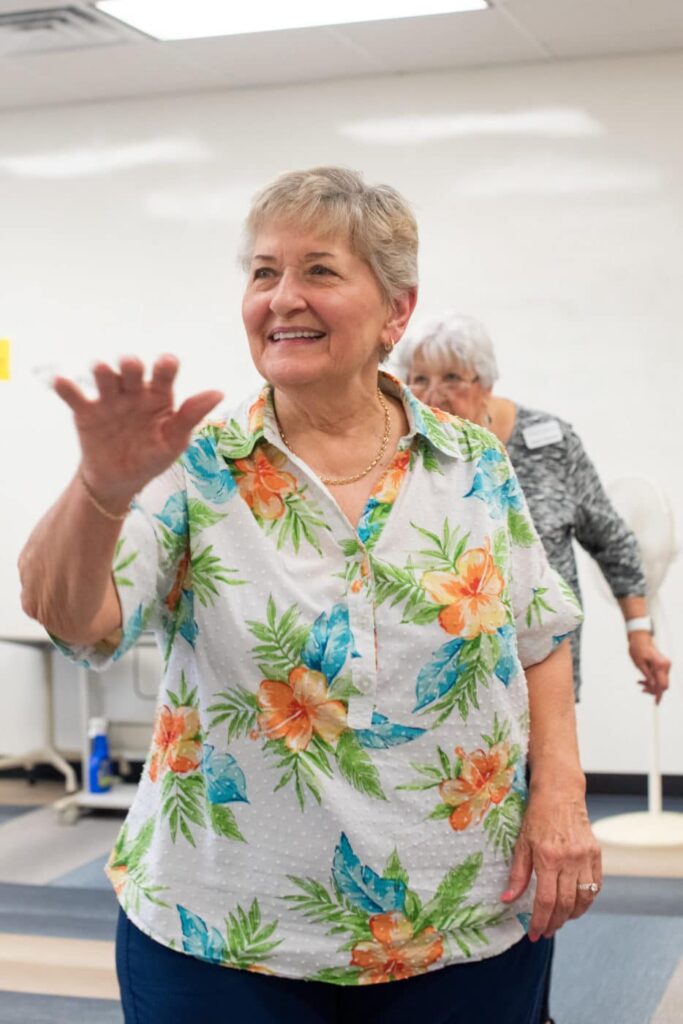
JP: It’s OK. to say, ‘I’m exhausted.’ We have so many caregivers who feel like they are imposters – that they are faking it ‘til they make it. We want to remind them that caregiving is a team sport and it’s a marathon, not a sprint. Today, SALSA is partnering with 45 local organizations to make San Antonio a place where older adults and their caregivers can be respected and live lives with dignity.
KM: The work SALSA is doing in terms of supporting older Americans is so important and so unique. We hear from people in the field of gerontology in California and Florida say, ‘We want to have an organization like SALSA here.’ San Antonio is very fortunate to have the SALSA collective and its dedicated partners doing the hard work and asking the tough questions to help older Americans and their caregivers live their best lives.
Blithe Wiley is a San Antonio-based freelance writer and member of the San Antonio Area Foundation’s Storytelling Ambassador contributor networ

